What are Rights of Possession in Panama and why is this so important for me to know?
gabriel illescas
The main difference is that with a...
The main difference is that with a Title you will be able to register the deed at the Public Registry, and no one will question the ownership. With Rights of Possession there is a process involved to get it Titled (could take up to 10 months) and its a right reserved for Panamanians only.
Posted February 20, 2013
Lucia Haines - Panama Realtor Inc.
The term "Derecho Posesorio" simply means "right of possession." Derecho Posesorio is a type of land reform which came to be in Panama the 1960´s under the direction of General Omar Torrijos.
The original purpose of the rights of possession land reforms was to give farmers with little resources who worked land, but did not have title, some sort of legal right to the land from which they derived their living.
...The term "Derecho Posesorio" simply means "right of possession." Derecho Posesorio is a type of land reform which came to be in Panama the 1960´s under the direction of General Omar Torrijos.
The original purpose of the rights of possession land reforms was to give farmers with little resources who worked land, but did not have title, some sort of legal right to the land from which they derived their living.
The main difference between having title and having rights of possession is that with title one has a registered deed in the public registry, thus eliminating any questions regarding ownership. Also, banks do not typically offer loans or financing for land that has right of possession.
It is possible to title land that is owned through rights of possession. This method of obtaining land does have a degree of risk involved with it, however, it can be a more economic way of obtaining real estate. The process differ slightly depending on whether the land is located within 200 meters of the high tide mark of the ocean or beyond those 200 meters.
A summary of steps required to title land that is owned through derecho posesorio are the following:
- The land with right of possession status must be surveyed and have its boundaries formalized by a licensed surveyor.
- A formal request must be presented to, and signed off by the neighbors of the land in question.
- Once all of the neighbors have signed off on the property with derecho posesorio, the competent government authorities must do a formal inspection of the property.
- Once this inspection is approved and all the neighbors have confirmed the boundary lines, the agricultural reforms office will submit a resolution.
- The value set forth on the land by the government must be paid. This value depends on the location and amount of the land.
- Last but not least, the documentation of the land is sent to the Public Registry to receive title.
The process of getting land titled from derecho posesorio status typically takes a minimum of 8 months.
Posted October 18, 2013
Lourdes Townshend
Posted March 22, 2014
Mark Hurt
Posted July 25, 2014
Bill Brunner
Posted September 5, 2014
Bill Hamilton - Bill Hamilton
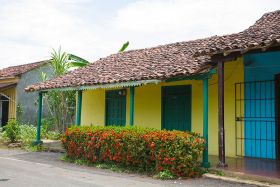 In Panama, “Rights of Possession” means what it says. When you have a property as Rights of Possession, that does not mean it is basically yours. It is not titled and not officially in the land registry as your property. If someone sells you property that is Rights of Possession, that property is untitled. In the future, someone could come and contest and say that they are entitled to it because they know the person who had it right before them and was in the family. By...
In Panama, “Rights of Possession” means what it says. When you have a property as Rights of Possession, that does not mean it is basically yours. It is not titled and not officially in the land registry as your property. If someone sells you property that is Rights of Possession, that property is untitled. In the future, someone could come and contest and say that they are entitled to it because they know the person who had it right before them and was in the family. By... In Panama, “Rights of Possession” means what it says. When you have a property as Rights of Possession, that does not mean it is basically yours. It is not titled and not officially in the land registry as your property. If someone sells you property that is Rights of Possession, that property is untitled. In the future, someone could come and contest and say that they are entitled to it because they know the person who had it right before them and was in the family. By rights, it is rightfully theirs.
In Panama, “Rights of Possession” means what it says. When you have a property as Rights of Possession, that does not mean it is basically yours. It is not titled and not officially in the land registry as your property. If someone sells you property that is Rights of Possession, that property is untitled. In the future, someone could come and contest and say that they are entitled to it because they know the person who had it right before them and was in the family. By rights, it is rightfully theirs. Posted February 3, 2015
Michael A. Martinez - B & B Real Estate Nicaragua / Panama Real Estate Information
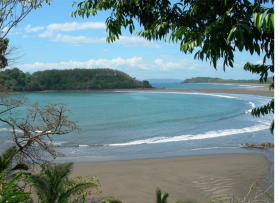 Rights of possession are claims that someone may have against the property, for example, in the western Azuero Peninsula, where I live now. I moved here in 2006, and at that time, there were three different agencies issuing what they thought was title or Rights of Possession to property here.
Rights of possession are claims that someone may have against the property, for example, in the western Azuero Peninsula, where I live now. I moved here in 2006, and at that time, there were three different agencies issuing what they thought was title or Rights of Possession to property here.There’s some history behind the story. About 50 years ago, a lot of pioneers crossed over from the eastern side of the Peninsula or elsewhere to the western side of the...
 Rights of possession are claims that someone may have against the property, for example, in the western Azuero Peninsula, where I live now. I moved here in 2006, and at that time, there were three different agencies issuing what they thought was title or Rights of Possession to property here.
Rights of possession are claims that someone may have against the property, for example, in the western Azuero Peninsula, where I live now. I moved here in 2006, and at that time, there were three different agencies issuing what they thought was title or Rights of Possession to property here.There’s some history behind the story. About 50 years ago, a lot of pioneers crossed over from the eastern side of the Peninsula or elsewhere to the western side of the Peninsula and the government basically gave them whatever they wanted. Each one put their fences up and they made a claim for Rights of Possession. They took care of their land. They farmed it. They brought cattle over. They made a lifestyle, while evolving over the last 50 years, many of those people got that land titled, but not everybody.
There are still claims of Rights of Possession on these pieces of land. People still have rights to their property. So as a foreigner, if you’re looking for something, most likely this situation would exist only away from the the main corridors, and you’ll find farms that are still held under Rights of Possession. There are still plenty of properties on the oceanfront that are owned under Rights of Possession and people are in the process of clarifying title with various laws here in Panama.
I have a subdivision of about 15 houses on the beach. They’re very beautiful. It’s a unique neighborhood because you can only use this one road to get to this neighborhood. So it’s not like somebody can never come in and take away your house from you. It’s a unique curvy mountain neighborhood and these houses are Rights of Possession. No one there has title but they freely exchange through purchases of sale, but they don’t get a deed. They get a certificate of possession.
I have a client right now who is in the process of getting the first titled property in that neighborhood. We met with the attorneys the other day and it looks like he will get it. There is lots of land that are held under Rights of Possession on the beaches. You have to be careful about buying, not just in Western Azuero but in all of Panama and then back in the hills, there are lots of large farms and other properties that people never bothered to get titled. You need a good lawyer and a good agent, to walk you through these processes.
There are two different types of ways of property that can be claimed. One is rights of Possession and one is via a title. The rights of possession can be cloudy and is not very clear and there could be legal disputes, whereas the title supposedly is clear, but sometimes there can be an issue, as I described with the example above.
If you have land under Right of Possession you have the rights to have the land titled. I purchased Right of Possession property myself for a very, very good price and that property at this moment is titled, so the higher the risk, the higher the reward. With the right consulting, you can make some good deals on Right of Possession property.
Posted May 10, 2015
Jonathan Stolarz - COSTA LINDA RESIDENCE CLUB
 In the United States when you buy a house, you get a clear title to the house. There is also title insurance, and you know that you own that house. In Panama, we have escritura. It’s a title that indicates you own the house, or if you have a mortgage, that the bank is the owner of that house until the time you pay the mortgage in full.
In the United States when you buy a house, you get a clear title to the house. There is also title insurance, and you know that you own that house. In Panama, we have escritura. It’s a title that indicates you own the house, or if you have a mortgage, that the bank is the owner of that house until the time you pay the mortgage in full.In Panama City, you have a title for everything. But if you go to David, Chiriquí you may find some houses...
 In the United States when you buy a house, you get a clear title to the house. There is also title insurance, and you know that you own that house. In Panama, we have escritura. It’s a title that indicates you own the house, or if you have a mortgage, that the bank is the owner of that house until the time you pay the mortgage in full.
In the United States when you buy a house, you get a clear title to the house. There is also title insurance, and you know that you own that house. In Panama, we have escritura. It’s a title that indicates you own the house, or if you have a mortgage, that the bank is the owner of that house until the time you pay the mortgage in full.In Panama City, you have a title for everything. But if you go to David, Chiriquí you may find some houses and lands without titles. It is very important to make sure that you have escritura to your land, but in Panama City, it’s not typically an issue.
Posted July 31, 2015
Jesahely De Janon - Panama Property Attorneys
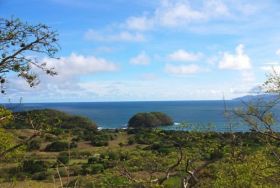 Many investors, whether Panamanians or foreigners, are buying possessory rights in Panama in recent years.
Many investors, whether Panamanians or foreigners, are buying possessory rights in Panama in recent years.The right of possession is the use of land, through a permit that is granted by the State, who owns it, with the intention to work the land, or build a residence. In theory, and according to the provisions of Law, who proposes to hold such land should prove the financial need, that he or she really needs to live or work it, and that he or she will occupy the land for...
 Many investors, whether Panamanians or foreigners, are buying possessory rights in Panama in recent years.
Many investors, whether Panamanians or foreigners, are buying possessory rights in Panama in recent years.The right of possession is the use of land, through a permit that is granted by the State, who owns it, with the intention to work the land, or build a residence. In theory, and according to the provisions of Law, who proposes to hold such land should prove the financial need, that he or she really needs to live or work it, and that he or she will occupy the land for a specific number of years.
As this right is only for occupation, you cannot use land as collateral to apply for a mortgage or an investment to apply for a resident visa.
Possessory rights are granted by the Ministry of Agricultural Development. Once this possessory right is recognized by the aforementioned institution, they may be assigned, sold or transferred, with the authorization of the institution.
Anyone wishing to buy possessory rights should first verify that there is evidence of the recognition of this right by the Ministry of Agricultural Development, and especially obtain legal advice, to avoid disappointments or fraud.
The title can be obtained. First, it will require an inspection. Once it is approved, then the land value is set by the government entity. After paying the price, a formal resolution is issued and registered in the Public Registry for the title.
This process can take two years.
Posted October 5, 2015
Iván Eskildsen - Cubitá Group
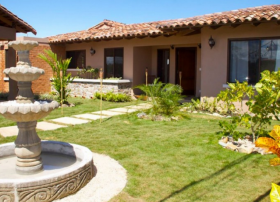 Properties that have rights of possession in Panama are those that do not have a title. Rights of possession consists of a form that says you can use the property on untitled land.
Properties that have rights of possession in Panama are those that do not have a title. Rights of possession consists of a form that says you can use the property on untitled land.There isn’t a title registry for land that has rights of possession, so someone might appear and claim the same rights to the same piece of land. It’s very delicate to own a property that doesn’t have a title and only have a rights of possession because you might not have full...
 Properties that have rights of possession in Panama are those that do not have a title. Rights of possession consists of a form that says you can use the property on untitled land.
Properties that have rights of possession in Panama are those that do not have a title. Rights of possession consists of a form that says you can use the property on untitled land.There isn’t a title registry for land that has rights of possession, so someone might appear and claim the same rights to the same piece of land. It’s very delicate to own a property that doesn’t have a title and only have a rights of possession because you might not have full possession of it.
I do not think it is recommendable to buy a land with rights of possession only. However, there are ways where the risks could be reduced. There are many considerations that could maybe provide further guarantee on the quality on that rights of possession but it’s usually not recommendable, especially for foreigners. Our development, as with most developments here in Panama, has titled land that is under the public registry, which is very formal and very secure.
Posted February 29, 2016
Anne-Michelle Wand - United Country Bocas del Toro
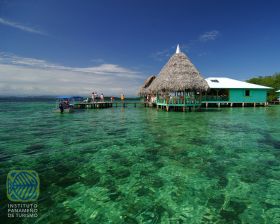 When people come to Panama with the intention of purchasing a property on a tropical island paradise like Bocas del Toro, they are often confused by the way properties can be acquired. Most of us are used to the concept of having a property title and perhaps even access to a title company that researches a property and makes assurances there is a clear trail of ownership with no encumbrances on the land. Panama does have a property...
When people come to Panama with the intention of purchasing a property on a tropical island paradise like Bocas del Toro, they are often confused by the way properties can be acquired. Most of us are used to the concept of having a property title and perhaps even access to a title company that researches a property and makes assurances there is a clear trail of ownership with no encumbrances on the land. Panama does have a property... When people come to Panama with the intention of purchasing a property on a tropical island paradise like Bocas del Toro, they are often confused by the way properties can be acquired. Most of us are used to the concept of having a property title and perhaps even access to a title company that researches a property and makes assurances there is a clear trail of ownership with no encumbrances on the land. Panama does have a property recording system similar to that of the US and these days, there are even title companies that offer their services to property buyers of titled properties.
When people come to Panama with the intention of purchasing a property on a tropical island paradise like Bocas del Toro, they are often confused by the way properties can be acquired. Most of us are used to the concept of having a property title and perhaps even access to a title company that researches a property and makes assurances there is a clear trail of ownership with no encumbrances on the land. Panama does have a property recording system similar to that of the US and these days, there are even title companies that offer their services to property buyers of titled properties. What is different is a long standing custom called “Rights of Possession”. It is a very old concept and is not unique to Panama. In a lot of ways it is a good concept for countries where the average income is marginal and many of the inhabitants have little or no chance of ever purchasing any property.
In its truest form, the basic premise is that the government, by default, owns any property that is not registered or recorded in some manner as being owned by a private person or entity. If there are no restrictions or regulations that forbid it, anyone may claim possession of a portion of the unused, unclaimed government land for their own usage. So, for example, if someone clears a piece of unclaimed land and uses it as a homesite, he is perfectly within his rights to do so as long as no-one else can show that they have been using the land for some purpose prior to that claim. If in the future the man wants to expand the boundaries of his property, perhaps for a growing family or increasing farm production, he can do so if no-one else claims rights to the property he desires. He never owns the land but as long as he can demonstrate that he is actively using the property for some real purpose, he is entitled to the use of it. He cannot sell the land because he does not own it but he can pass his “Right of Possession” on to his family or anyone else under whatever arrangement is mutually agreed upon.
The problems that typically arise with “ROP” properties stem from the inconsistency of past recording methods used and the lack of clearly defined boundaries. Sometimes it may be that the land has a history of several past users who have occupied or used the property. The claim may go back through several family generations and although the land has been neglected for some time, a distant cousin may suddenly claim rights if he foresees some immediate personal benefit.
Ownership of the rights to the property is not always documented in a standardized manner. It may have been registered with a regional Office of Agrarian Reform, or the local mayor’s office, or even with a local notary or other “official.” True ownership of the property rights can be challenging to demonstrate if ROP property was not registered with Catastro, the public registry in Panama.
If ownership is contested, tradition has it that ownership rights must be proven by the possessor. So buyers who have not spent the time on proper procedure and research can find themselves in a difficult position. It is extremely important then to make assurances that the person selling the ROP is the actual and sole holder of the ROP.
Another point of confusion with people who are unfamiliar with ROP property is that the possessor must maintain a presence on the property in order not to lose his rights of possession. If the holder of the ROP does not sustain some evidence of his continued use of the property, he will lose claim to it. As an example, if you purchase an ROP property, use it for three years and then leave for ten years without maintaining the property in some manner, it may well be that when you return, the property rights will have been taken over by someone else.
However, all of these potential problems can be avoided by following a few simple procedures from the beginning. ROP ownership of property is a land-backed asset and has a viable market value. ROP properties can be used for anything ranging from agriculture to a vacation home to a beach resort. The value is determined by the usage and the current real estate markets. Sometimes the only property that fits your criteria is ROP and if done properly, the benefits certainly outweigh the risks.
The primary way to reduce the risk is to hire an attorney that fully understands the intricacies of ROP and is experienced with ROP transactions. Even though, in some cases, legal documents are scattered, a competent attorney familiar with local procedures will be able to find documentation of ownership if it exists. Obtain documents from the Magistrate office, Reforma Agragia, and ANAM certifying that the seller is the sole holder of the ROP. Find as much information as possible to prove occupancy and the right of possession of the seller in advance of the sale. Make a contract that allows for adequate due diligence time before any money changes hands.
Almost without exception, the challengers of rights of possession come from either a family member of the seller or from a neighbor of the seller. Make an effort to get official statements from all family members declaring that the seller has the sole right to sell the property. Have the property surveyed and then have all the adjoining neighbors (if any) sign the same declaration with the additional acknowledgement of agreeing to the surveyed boundary lines.
It all sounds like a lot of work. It can be, but your attorney does it all. ROP is not to be feared if you proceed through proper channels. There are great opportunities to be had in Panama with ROP Properties. With a secure judicial history and the Panamanian legal recording structure becoming more centralized, confidence in ROP transactions is growing and it is now becoming easier and more streamlined to gain clear title to land if you desire.
In future articles regarding real estate in the beautiful tropical islands of Bocas del Toro, Panama, I will talk about some of the proper procedures to title ROP properties in a timely manner.
Posted April 21, 2016
David Btesh - Pacific Realty / Pacific Developers
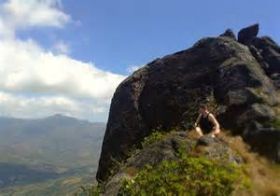 In order to qualify for rights of possession (derecho posesorio) in Panama, you have to be on a property for 7 years, taking care of it without anybody bothering you. That doesn’t happen unless you’re on top of a mountain where there are no roads. You claim possession because you’ve been there so long, and you took care of the property, so you have the first right to own it, but you have to go through paperwork. If not, you don’t own it.
In order to qualify for rights of possession (derecho posesorio) in Panama, you have to be on a property for 7 years, taking care of it without anybody bothering you. That doesn’t happen unless you’re on top of a mountain where there are no roads. You claim possession because you’ve been there so long, and you took care of the property, so you have the first right to own it, but you have to go through paperwork. If not, you don’t own it.  In order to qualify for rights of possession (derecho posesorio) in Panama, you have to be on a property for 7 years, taking care of it without anybody bothering you. That doesn’t happen unless you’re on top of a mountain where there are no roads. You claim possession because you’ve been there so long, and you took care of the property, so you have the first right to own it, but you have to go through paperwork. If not, you don’t own it.
In order to qualify for rights of possession (derecho posesorio) in Panama, you have to be on a property for 7 years, taking care of it without anybody bothering you. That doesn’t happen unless you’re on top of a mountain where there are no roads. You claim possession because you’ve been there so long, and you took care of the property, so you have the first right to own it, but you have to go through paperwork. If not, you don’t own it. Posted November 26, 2016


